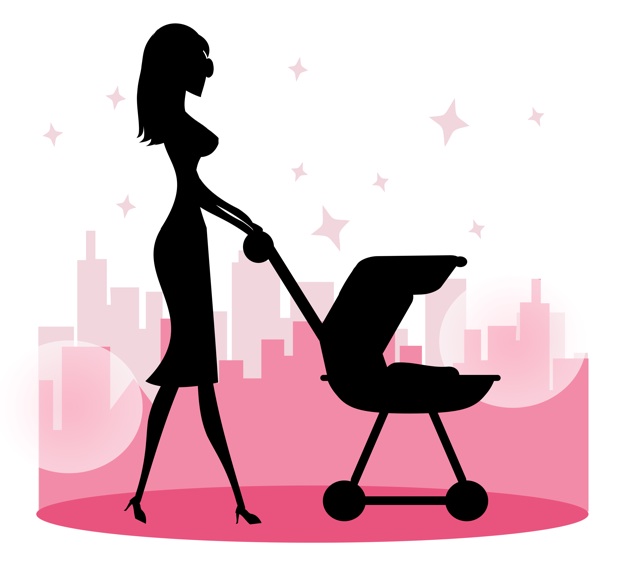SingaporeMotherhood | Baby & Toddler
March 2012
Surviving the First Weeks with a Newborn

Congratulations, you have a beautiful baby! Do you also have other small children (your own, unfortunately, so you can’t return them to someone else) in the house? Are you wondering why your breasts feel like rocks? Have you been tearing up at every commercial starring a small animal? Welcome to the newborn trenches. It’s daunting, exhausting, and thrilling, all at the same time. But don’t worry, you will get your life back – one day.
[banner][/banner]
Sleep When Baby Sleeps
You’ll hear this a lot. It’s the number one basic rule of life with a newborn. Sleep, because you need it, and you’re probably not getting enough of it. Yes we know that it’s tempting to start Facebooking once Baby’s out for the count. Stop. Let your husband do the updating instead. Turn your phone to the silent mode or switch it off. “My husband and I sent out mass phone messages with details of our baby’s birth and a picture of him. In the message we asked for privacy and no visitors for two weeks as we would be adapting to life with our newborn. Most people understood and were very nice about it, so I actually got to rest well, and did not have to think about entertaining guests when I was not in the state of mind to do so,” shared mum-of-one, Juliet Loh, 33.
Tip: If you really must go online, do it, then get some sleep. Try to make the most of screen time by using it to interact with other mums in birth club forums. You can share battle stories, coping strategies, and support each other through the (seemingly) never-ending diaper changes.
Breastfeed
Seriously, breast milk is the best and most perfect food for Baby. It’s free, easily portable, least likely to cause allergic reactions, readily available at the right temperature, and contains all immunity-boosting elements that help Baby fight infections.
Tip: Breastfeeding is a natural process. However, it may not come naturally to all. If you are a first-time mother, breastfeeding can be painful and difficult in the beginning. Get help. Call the hospital that you gave birth in and ask for help. Meet up with a lactation consultant. Call a breastfeeding hotline. You can find some numbers here.
Get Help
Give the cape a rest; there’s no need to be SuperMum. Let other people do everything. If someone offers help, take it. Sound the family help alarm. No need to be ashamed to call your mummy. She’ll be more than happy to be involved. You could also hire help. Some mums engage their confinement ladies for three months instead of the usual one, to ensure that Baby is already on a good sleeping and feeding routine before mum herself takes over. This also guarantees the tired mum time to rest.
Tip: No family help, no domestic help and no confinement lady? Get hubs to take a couple of weeks off work so that you have some rest time. Consider confinement food delivery for yourself and tingkat for hubby. Stay-at-home-mum Clare Lee ordered her confinement meals from Natal Essentials twice. “The food was yummy, they catered to my preferences and the portions were large enough for my husband to share sometimes,” the mum of two boys said. Buy groceries, diapers, formula milk (if using) online and get it all delivered to your doorstep.
Prioritise
As a new mum, staying sane is important. You have the license to (i) let the dishes stay in the sink, (ii) leave the dust bunnies hopping in every corner, (iii) allow laundry to accumulate. Fret not, multi-taskers, you’ll have a lot more to deal with. You’re probably going to be sleep-deprived as well, so (wo)man up and take it all as a challenge. Do what it takes (within reason, of course) to maintain your sanity.
Tip: Get out! Try not to stay cooped up at home. Pop Baby into a sling or baby carrier and bring her out for a walk in the park. Put her into her stroller for a brisk stroll around the neighbourhood and get some exercise along the way. Most babies will fall right asleep as they are lulled by the motion, so that’ll buy you some quiet time as well.
Be Prepared For The Blues
It’s all to do with hormones. First they made you horny. Then you got pregnant and they made you over-emotional about everything. Now they’re turning you into a weepy-saurus. It’s not uncommon to experience these mood swings after the birth of a baby. The so-called “baby blues” generally hit four to five days post-partum, and are thought to be caused by a variety of factors: hormones, the adjustment after baby’s birth, lack of sleep, change in routine and so on. “When I went back for my first gynae visit, I just sat there and cried for 10 minutes,” Eileen Chua, a 37-year-old HR executive said. “My gynae took my husband aside and scolded him,” the mum to two girls recalled.
Tip: If you feel that you are losing control, get help. The symptoms of baby blues should ease after a fortnight. If not, they could indicate a more serious condition such as postpartum depression, which affects up to 15 percent of women in Singapore. Get help.
Give The Camera A Workout
Take lots of pictures and videos. Now that everything’s gone digital, you don’t have to worry about printing costs if a picture is bad – just delete it! So go ahead, be trigger happy – you’ll be glad you did. One doting daddy was shocked to discover that he had taken over 8,000 pictures of his newborn in less than two weeks! Of course, do remember to back up your pictures in a thumb drive or an external drive.
Tip: Start a photo-a-day blog for Baby, posting one picture a day and a line or two about what she did or how she behaved. Over the weeks/months/years, this will document her growth and serve as a memory hub for your precious.
All content from this article, including images, cannot be reproduced without credits or written permission from SingaporeMotherhood.
Follow us on Facebook, Instagram, and Telegram for the latest article and promotion updates.






